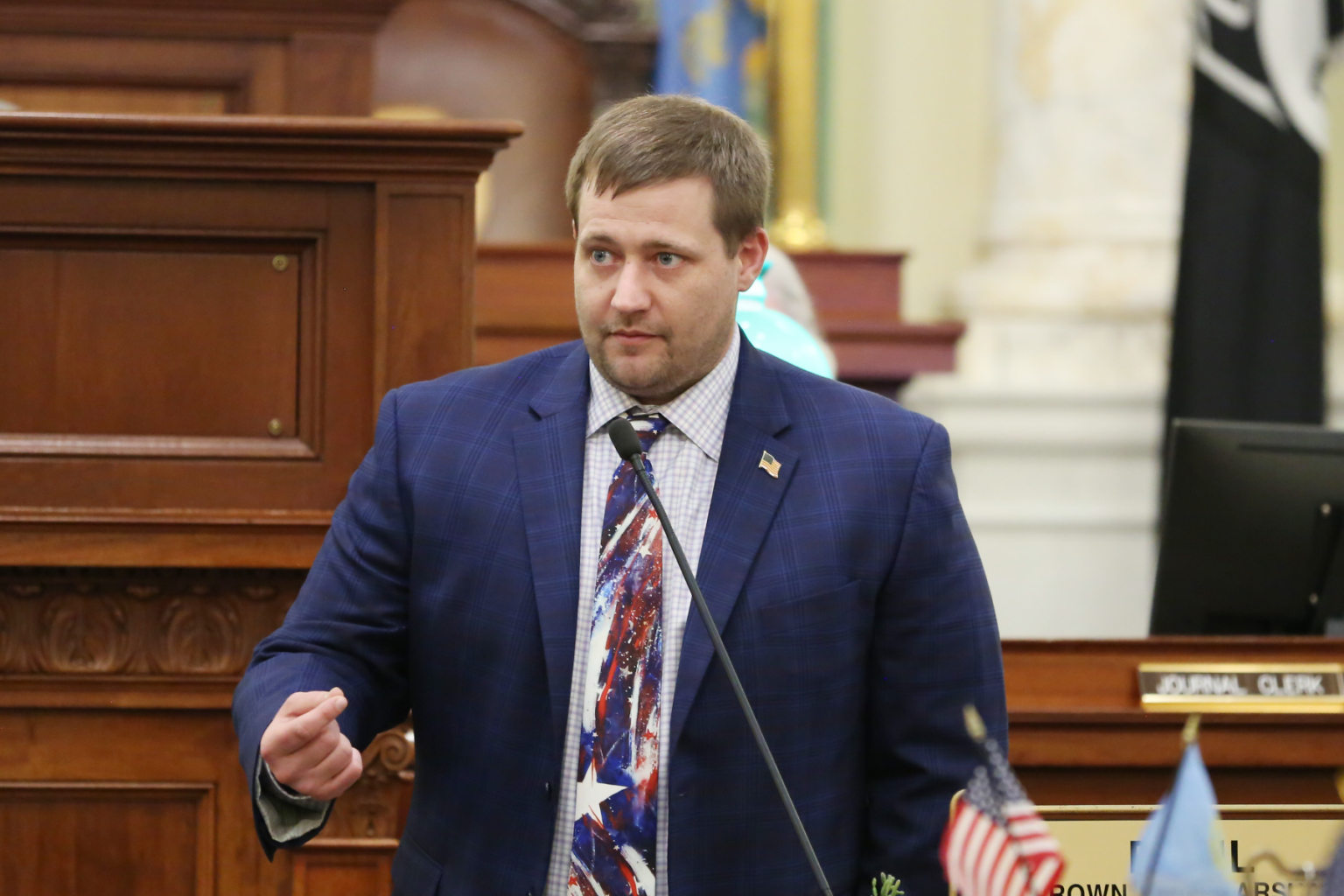
Seth Tupper, South Dakota Searchlight
Petitioners hoping to put state constitutional amendments on the ballot won’t need signatures from each of South Dakota’s legislative Senate districts.
After the governor vetoed a bill containing the requirement last week, the state Senate sustained the veto Monday at the Capitol in Pierre. The House voted earlier Monday to override the veto, but agreement from both chambers is required to overturn the governor’s action.
Michael Rohl, R-Aberdeen, was among the senators who opposed the bill and supported the veto. While the bill’s sponsors said it would force more inclusion of rural areas in the political process, Rohl said the bill could harm rural voters.
“It gives every district veto power,” Rohl said. “That means that we, as a small community, don’t have a voice unless we get Sioux Falls to agree.”
The legislation, House Bill 1169, would have required constitutional amendment petitions to have signatures from registered voters in each of the 35 Senate districts spread across the state. Petitions would have needed a number of signatures from each district equal to 5% of the total votes cast for governor in that district during the last general election.
That would have been an addition to the existing requirement that petitions have a total number of signatures — from anywhere in the state — equal to at least 10% of the votes cast statewide for governor in the last general election.
House Bill 1169’s main sponsor, Rep. Rebecca Reimer, R-Chamberlain, said Monday she’s willing to work on the legislation’s language and bring it back next year.
Reimer and other lawmakers who wanted to override the veto said voters are tired of the number of constitutional amendments showing up on their ballots, that the state constitution should be reserved for matters pertaining to the structure and powers of government and not for specific policies, and that the constitution should be harder to amend. Multiple lawmakers referenced an amendment last year, rejected by voters, that would have inserted abortion rights into the constitution.
Legislators considered numerous bills this year to restrict citizen lawmaking. Among those that passed into law were a bill to move the deadline for submitting petition signatures for citizen-initiated ballot measures from May to February, which will shorten the signature-gathering window by three months. Legislators also sent a measure to the 2026 ballot that will ask voters to raise the approval threshold for constitutional amendment ballot questions from a simple majority to 60%.
Monday was the last day of this year’s legislative session, set aside to consider any remaining vetoes from Gov. Larry Rhoden. Earlier this month, legislators sustained Rhoden’s only other veto, which would have offered additional child care tuition assistance to child care workers for their own children.
